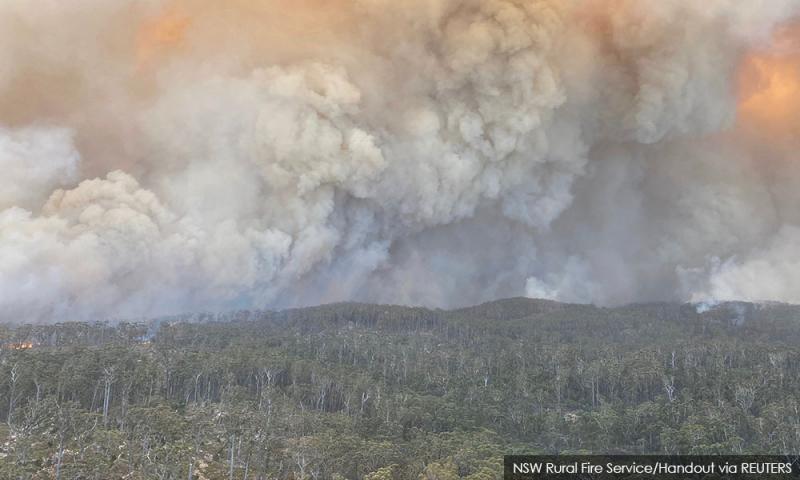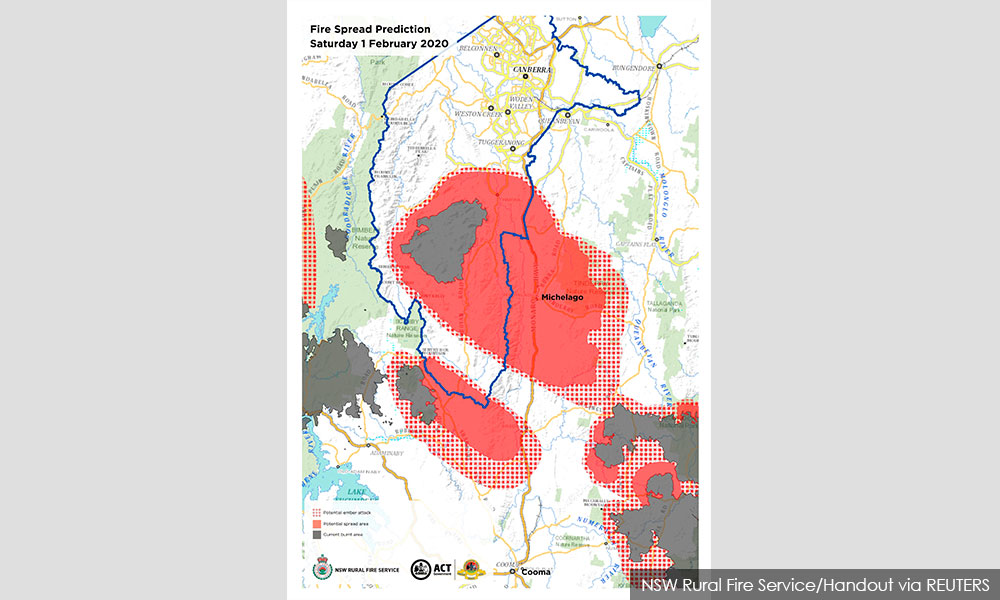Australia's capital braces as hot, windy conditions fuel bushfires
Soaring temperatures and strong winds stoked unpredictable bushfires near Australia’s capital city today, closing a major highway and prompting warnings for some residents that it was too late to evacuate.
Skies along the Monaro Highway in the Australian Capital Territory turned orange-red as an uncontrolled blaze ballooned to more than 30,000 hectares in size.
The territory, home to the country’s capital, Canberra, declared a state of emergency yesterday in anticipation of the severely hot and windy conditions that are expected to last through the weekend.
It is the area’s first declared emergency since 2003 when four people were killed and almost 500 homes destroyed in wildfires.
“Today’s extreme heat ... dry conditions and a severe fire danger rating means we can expect another very challenging firefighting day,” ACT Emergency Services Agency Commissioner Georgeina Whelan said in a televised briefing in Canberra.
“The conditions will potentially become more dangerous and the fire may pose a threat to lives directly in its path.”
A second major uncontrolled fire was burning slightly further south in the Snowy Monaro region of New South Wales state, the same alpine area where an air tanker crashed on Jan 22 killing three American firefighters.
Temperatures were forecast to top 40 Celsius in several parts of both NSW and the ACT today, prompting widespread warnings for people to be alert to the potential fire danger.
Of the 60 fires alight in NSW, officials had issued emergency level warnings for five in the state’s south. In the state of Victoria, where 22 fires were active, one was raised to emergency level status and authorities issued a severe weather warning for intense rainfall that could lead to flash flooding in parts of the state.
Australia’s devastating and prolonged bushfire season has killed 33 people and an estimated 1 billion native animals since September. About 2,500 homes have been destroyed and more than 11.7 million hectares of tinder-dry bushland have been razed.
- Reuters
RM12.50 / month
- Unlimited access to award-winning journalism
- Comment and share your opinions on all our articles
- Gift interesting stories to your friends
- Tax deductable

 Reuters
Reuters